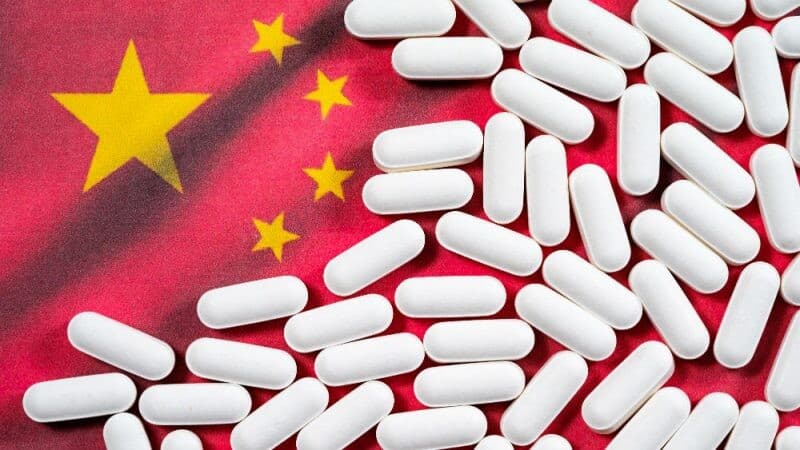
Public anger in China over 'ineffective' generic drugs in hospitals
What's the story
Public discontent is brewing in China due to the growing ineffectiveness of generic drugs used in state hospitals, BBC reported.
The country's drug procurement system, which prioritizes affordable generic medications over branded pharmaceuticals, has been criticized by doctors for allegedly compromising patient safety to reduce costs.
However, officials argue that these concerns are based on perception rather than fact, citing anecdotal evidence and subjective experiences as the primary sources of dissatisfaction.
Debate escalates
Public debate intensifies over generic drug efficacy
The controversy started in December when authorities revealed that nearly 200 companies, mostly domestic generic drug manufacturers, had won contracts to supply medicines to state hospitals.
The debate escalated in January after a viral video interview of Dr. Zheng Minhua from Shanghai, who flagged issues like ineffective antibiotics and laxatives.
He mentioned "antibiotics that cause allergies, blood pressure that won't go down, anaesthetized patients who won't sleep," and laxatives that didn't clear the stool as some of the problems encountered.
System scrutiny
China's drug procurement system and public frustration
This revelation has resulted in people sharing their horror stories of generic drugs on social media platforms like Weibo.
According to a user on Xiaohongshu, China's Instagram-like app, after doctors prescribed them the generic version of an antibiotic, they immediately went online to get the "original" "real" one because the generic version "tasted different."
A number of the most popular posts discussing the procurement controversy have been deleted, but it's not clear who did it.
System
China's drug procurement system was introduced in 2018
China's drug procurement system, introduced in 2018, was aimed at curbing state expenditure on medicines.
It involves local governments tendering for about 70% of state hospitals' annual drug needs, favoring cheaper domestically-produced generics.
While Beijing claims the system has saved residents over $50 billion in five years, it has also prompted some manufacturers to offer drugs at extremely low prices, raising quality concerns.
Quality fears
Low procurement prices and drug efficacy concerns
A proposal by 20 doctors last month had raised concerns that low procurement prices could prompt unethical companies to cut corners, which could impact drug efficacy.
Hangzhou's Dr. Xia Zhimin had also questioned data from trials of generic drugs on the procurement list, hinting at possible fraud.
However, the National Medical Products Administration dismissed this as an "editorial error," and his article was removed.
Counterfeit complications
Counterfeit drugs exacerbate global quality concerns
The problem of counterfeit drugs only adds to global quality concerns.
Experts suggest making them affordable through cheap generics but also tightening quality control and drug approval standards.
This controversy comes amid a healthcare crisis in China, which is facing a rapidly aging population and rising health costs.
Because of the country's rapidly aging population, total health expenditure has climbed roughly 20-fold during the last two decades, reaching 9 trillion yuan ($1.25 trillion; £1 trillion) in 2023, per BBC.